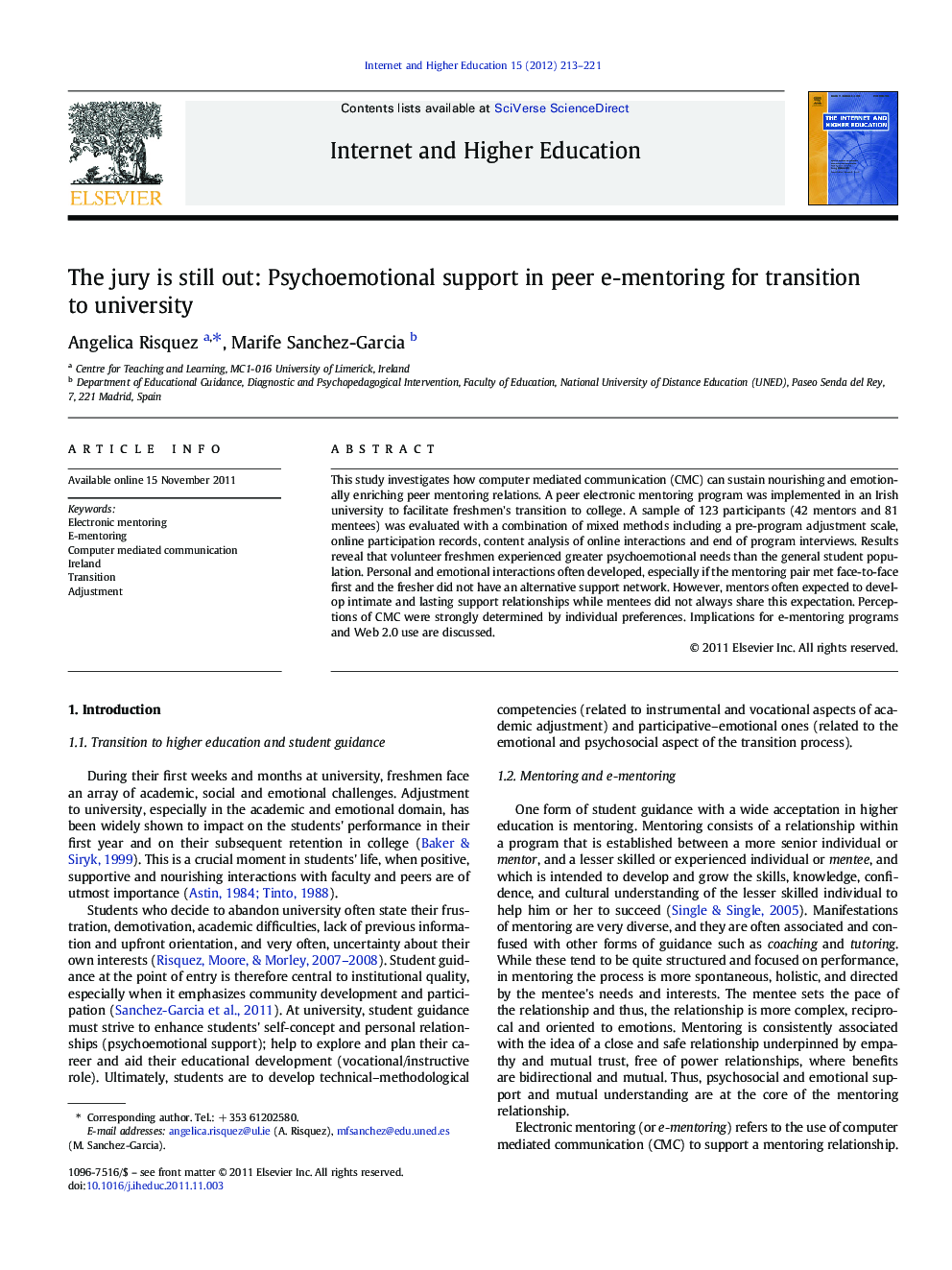| Article ID | Journal | Published Year | Pages | File Type |
|---|---|---|---|---|
| 357799 | The Internet and Higher Education | 2012 | 9 Pages |
This study investigates how computer mediated communication (CMC) can sustain nourishing and emotionally enriching peer mentoring relations. A peer electronic mentoring program was implemented in an Irish university to facilitate freshmen's transition to college. A sample of 123 participants (42 mentors and 81 mentees) was evaluated with a combination of mixed methods including a pre-program adjustment scale, online participation records, content analysis of online interactions and end of program interviews. Results reveal that volunteer freshmen experienced greater psychoemotional needs than the general student population. Personal and emotional interactions often developed, especially if the mentoring pair met face-to-face first and the fresher did not have an alternative support network. However, mentors often expected to develop intimate and lasting support relationships while mentees did not always share this expectation. Perceptions of CMC were strongly determined by individual preferences. Implications for e-mentoring programs and Web 2.0 use are discussed.
► Volunteer freshmen experienced greater psychoemotional needs. ► Emotional support arose with face-to-face meetings and lack of alternative support. ► Mentors expected from the relationship than mentees. ► Perceptions of CMC were strongly determined by individual preferences.
